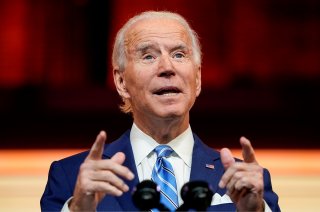President Biden to Distribute More Stimulus Checks? Democrats Want It.
If Biden, Congressional Democrats, and Congressional Republicans cannot agree on a relief measure, Americans will suffer from its absence.
Here's What You Need To Know: "This idea seems far-fetched and unusual, but it is already gaining some traction on Capitol Hill."
One of President Joe Biden’s promises during his 2020 presidential campaign was to govern by consensus. Attempting to draw a contrast between himself and the single-mindedness of his predecessor, Biden emphasized compromise and bipartisanship.
This was the case, at least, until the business of Congress actually began. In March 2021, when it became apparent that no Republican would support Biden’s roughly $2 trillion plan, Biden simply passed it without them. However, he was roundly criticized for this decision, with conservative commentators in particular arguing that it contradicted the spirit of bipartisanship that he had invoked on the campaign trail.
For Biden’s next batch of consequential legislation – namely, the twin COVID-19 relief bills encapsulated in the American Jobs Plan and the American Families Plan – the president has signaled that he intends to seek Republican input. Towards this end, he has hosted Democratic and Republican lawmakers at the White House, trying to garner consensus for further relief measures.
Biden will need an enormous effort for this to work. The combined costs of the American Jobs Plan and American Families Plan are thought to exceed $4 trillion. According to Bloomberg, Biden proposed the $2.25 trillion American Jobs Plan to the Republicans, who countered with an offer of $568 billion, roughly one-fourth of Biden’s request. This is an inauspicious way to begin negotiations, to say the least.
In the mean time, if Biden, Congressional Democrats, and Congressional Republicans cannot agree on a relief measure, Americans will suffer from its absence. For this reason, a Washington-based progressive group called the Economic Security Project has proposed a novel measure to avoid this deadlock: “automatic stabilizer” payments.
Put simply, an automatic stabilizer is a fourth stimulus check that does not need further Congressional approval to pass. Instead of being tied to Congress’s immediate approval, they would be scheduled to kick in automatically following negative economic indicators, such as a spike in unemployment rates or a decrease in household income.
This idea seems far-fetched and unusual, but it is already gaining some traction on Capitol Hill. Last week, fifty staffers from the Senate Finance Committee attended a presentation by the Economic Security Project. And eighty Democratic members of Congress are already in favor of further stimulus payments, although these payments would undoubtedly meet stiff resistance from Republicans (and, it has been argued, might not be necessary for the economy).
Trevor Filseth is a news reporter and writer for the National Interest.

